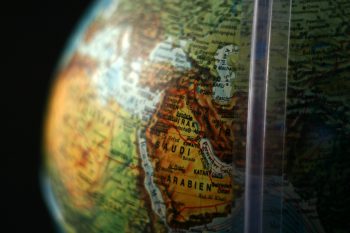How to say ‘very much’ in Arabic 10 different ways? Posted by Hanan Ben Nafa on Jun 21, 2017 in Arabic Language, Culture, Vocabulary

Today, we’re going to learn how to say ‘very much’ in Arabic, in seven different way. To do this, I’m using a song (check video below) by the Egyptian singer – Tamer Hosny – to be able to focus on each of these phraseس and learn how to pronounce them.
As you probably know, Arabic is a diglossic language, which means that it has a standard variety and several regional varieties or dialects. This division resulted in a great linguistic diversity across the different Arab countries. This diversity is translated into linguistic differences on all levels, whether they were lexical (word choice), syntactic (sentence structure and word order), or phonetic (pronunciation). The thing is that these dialects are not mutually intelligible and some Arabic speakers from the Middle East (e.g. Iraq) can’t understand Arabic speakers from North Arica (e.g. Algeria, Morocco, etc). So, it’s a good idea to know how a very basic and everyday word such as the adverb: ‘very much’ is said in seven different countries/regions in the Arab world.
Before we start looking at these seven, let’s first make sure we know how to say ‘very much’ in Standard Arabic.
- Standard Arabic:
جـدّاً
Jiddan
(Very much)
Below, you’ll find a list of the seven different words, appearing in the order the singer is saying them. We’ll only focus on the first part of the song (starting at 1: 12 – 1:32) where the seven different words are actually mentioned.
- Libyan dialect:
هـلـبا
(Halba)
- Tunisian dialect:
بـرشا
(Barsha)
- Saudi dialect:
مـرّه
(Marra)
- Levantine dialect:
كـتـيـر
(Kteer)
- Moroccan dialect:
بـالـزّاف
(Bizzaaf)
- Gulf Arabic dialects:
وايـد
(Waayid)
- Egyptian dialect:
أوي
(Awi)
At the end, I would like to add two other ways (below) of saying ‘very much’ that are used in Iraq and Sudan.
- Iraq:
كـلّـش
(Killish)
- Sudan:
شـديـد
(Shideed)
– – – – – – – – – – – – – – – – – – – – – –
*You can test yourself by trying to match the country where the word is usually used (to the left) with the actual words (to the right).
Morocco هلبا
Libya مرة
Levant وايد
Egypt بالزاف
Tunis كلّش
Saudi برشا
The Gulf countries كتير
Iraq أوي

Build vocabulary, practice pronunciation, and more with Transparent Language Online. Available anytime, anywhere, on any device.




Comments:
Ninujan:
This is a great list! I have personally heard all of them and used most, including two more.
We can add واجد (waajid) for Benghazi and eastern Libya, هلبا is used in Tripoli and western Libya. واجد is like وأيد in the Gulf except they generally pronounce “j” as “y”. Also, many speakers in various non-urban Levant areas and into the Hijazi and elsewhere say كثيرretaining the ث.
Hanan Ben Nafa:
@Ninujan Thanks Ninujan for your comment!
Yes, these are indeed used in Libya (East and West).
I’m actually from Libya, but I did not list the phrases that are specific to cities. Rather, I was focusin on the main one used in each country.
Thanks again for passing by and for adding these, very useful for those who are interested 🙂